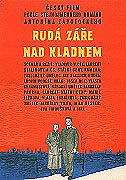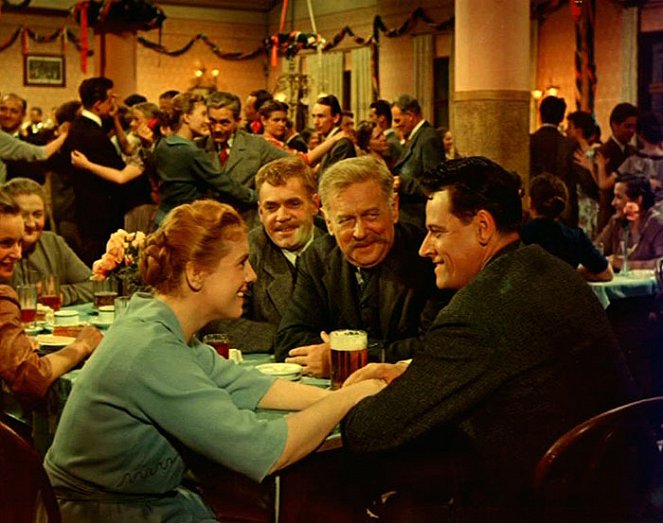Réalisation:
Vladimír VlčekPhotographie:
Jan StallichMusique:
Ludvík PodéšťActeurs·trices:
Josef Bek, Vlasta Chramostová, Jaroslav Průcha, Marie Ježková, Vlasta Fabianová, Jaroslav Vojta, Vilém Besser, Jarmila Kurandová, Eva Jiroušková (plus)Résumés(1)
The First World War has ended and soldiers are returning home from all the front-lines. Among them is Toník, whose wife and children are waiting in Kladno, as is his work in the secretariat of the Social Democratic Party. Filled with courage and lessons drawn from revolutionary Russia, Toník gets down to work together with other party members. However, their efforts have no support from the party's head office, which quickly forsakes its revolutionary ideals. In December 1920, police occupy the People's House in Prague. The people of Kladno immediately call a general strike and prepare themselves for an armed rebellion. Leaders of the railway workers union let them down, however, and the army comes to Kladno and soon arrests the rebellion leaders, headed by Toník. The strike is broken and the Prague workers are defeated. The left wing of the Social Democratic Party draws an unequivocal conclusion from the defeat - the party leadership failed in the struggle. In May 1921, the left wing calls a Congress in Prague, which Toník joins together with other released comrades. The Congress votes for an affiliation to the 3rd International and for the founding of the Communist Party of Czechoslovakia. (texte officiel du distributeur)
(plus)Critiques (3)
First question after returning from the war: "Comrades, what about socialization?" Historical cooperation: Institute of the History of the Communist Party of Czechoslovakia. Wide smiles! Even wider shoulders! The oppressed proletariat is finally on the rise! Politically aware five-year-old girls! Politically and historically it’s relatively harmless, but the ideological germ of a forty-year crime cannot be repelled.
()
This film is about how not to handle the closely watched adaptation of the book of the same name by Antonín Zápotocký, who was such a sly fox that he projected himself into the character of the main protagonist in order to honor in the best possible way the 30th anniversary of the founding of the Communist Party (and he was not even president yet in 1951). At that time (1921) he was in Pankrác, so he was only an honorary founder, but he still was one. In terms of the film, we find that there is no other project as exemplary as this. Strangely enough, even when we compare New Fighters Shall Arise to The Red Glow over Kladno, it resembles a film and not a poster. It was thus prepared scientifically, with a lot of rewriting, and a lot of building of new exteriors on the set because the Kladno of the time was not suitable for filming. Apparently, Zápotocký's hands were tied in the office in the meantime, and even his personal supervision was unable to have some of the events from the book in the film. So what are we left with? The feminizing Chramostová and Fabiánová and, of course, Míla Besserů and his Václavíček, who brightens the day for the whole week ahead by how sincere and stupid he is. "Is it true, Dad, that Lenin is a terribly big man?" - "Of course he is big." - "Dad, how big is he? Is he bigger than you? Would he fit through the door?" P. S. Anyone who has noticed that the logic of some events seems to be tailored to a longer period than just 1918-1921 is right. The screenwriters evidently just moved everything that wasn't crossed out in the book forward, regardless of the consequences.
()
La plupart des commentaires et évaluations des utilisateurs ici ont clairement laissé de côté l'objectivité et ont été piétinés de la même manière que l'impartialité l'était en 1955 par les idéologies de l'époque, les historiens, et enfin les scénaristes et réalisateurs. L'idéologie se dégage réellement de chaque scène comme une chaleur provenant des hauts-fourneaux bien chauffés de Kladno, cependant le film décrit des événements réels qui se sont réellement déroulés, seuls les comportements ou attitudes des personnages, l'ensemble du film et son message sont marqués par le réalisme socialiste des années 50 et son idéologie. Cependant, la plupart des personnes qui jugent mécaniquement le considèrent, mais la majorité d'entre elles n'a même pas vu le film.
()

